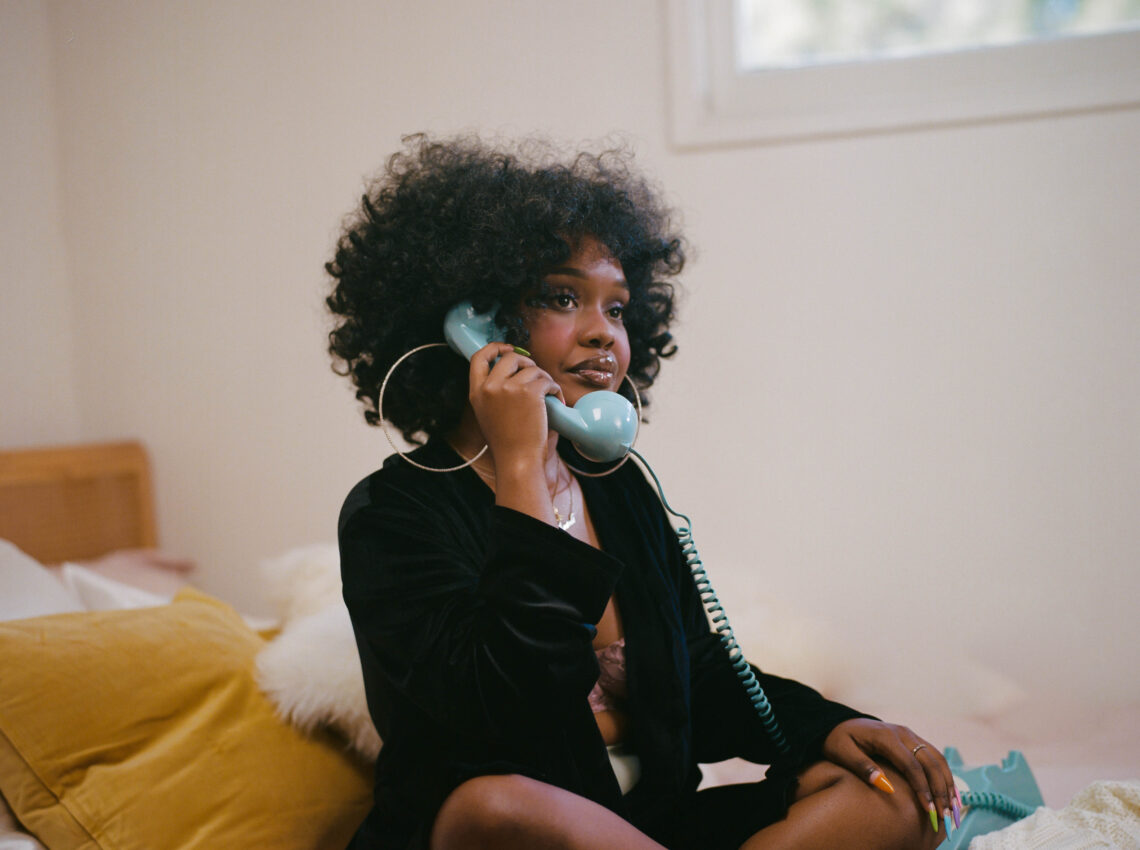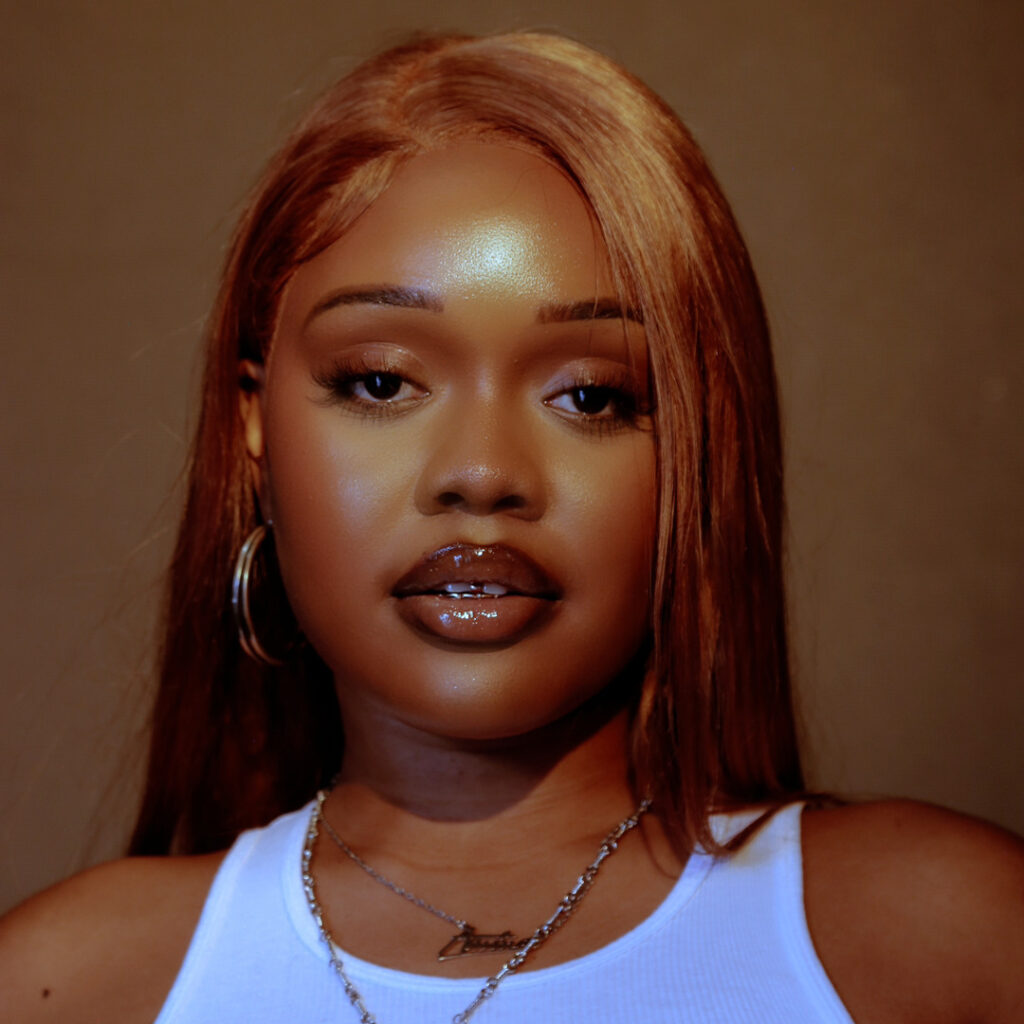Amindi, When Her Voice Cracks, I Remember My Mother

When Amindi sings, she sounds like she’s telling me a secret she might regret. There is a careful hesitance in her delivery, not insecurity, but intimacy. Like a friend pulling you into the bathroom at a house party to cry, confess, or both. Her voice is not clean. Not polished. It breathes and cracks and sometimes drags behind the beat like it doesn’t want to be caught. But in that hesitation, in that friction between note and nerve, something deeply familiar lives.
I didn’t know Amindi until Spotify snuck her into my queue one night, somewhere between insomnia and distraction. The song was pine & ginger, and it felt like standing barefoot on linoleum after everyone had gone to bed. Then came slideshow, and haircut, and her recent EP Nice, each one tugging gently at the thread I hadn’t realized was loose. Her music sits with you. It hums softly. And it reminds me, maybe too much, of my mother.

My mother didn’t play music so much as live inside it. The radio was always on. Anita. Sade. Lauryn. Erykah. Even on silent days, she hummed to herself, at the sink, over the stove, while untangling my hair. It wasn’t pretty, always. Her voice would catch on certain notes. Or maybe the note would catch on her. I never asked. But I remember the way her voice cracked on Sundays. That low, quiet breaking point when she thought I wasn’t listening. It was never on the hook of the song, always in the verse. A lyric too close to home, or a harmony too heavy to carry. And I’d freeze, ears perked, trying to catch what exactly had broken open. Amindi does that to me now. She makes me freeze.
What makes Amindi matter is not just her voice, though it’s special, it is. It’s the space her voice creates. It dares to be small in a world obsessed with volume. Her tone is journal-like, private, sometimes even mumbled. The production rarely intrudes. Her songs feel like they were written while lying on her back, knees up, ceiling fan spinning.
And yet they cut.
There’s something radical in how understated she is. Her softness doesn’t beg for pity. Her sadness isn’t adorned with theatrics. Her joy doesn’t need a bridge and a choir. It just exists. As is. In Kisses, she sounds suspended, like she’s whispering through gauze, each line kissed by detachment. It’s not heartbreak, exactly. It’s the sound of shutting down before you ever let yourself feel. With bake, the vulnerability doesn’t announce itself, it simmers. Like watching home video footage of yourself learning to walk, wobbly, unguarded, held steady only by hope. She reminds me of the parts of myself I’d rather keep hidden. And she makes me brave enough to look.
Amindi is still emerging. Not because she lacks talent, or presence, or vision. But because our culture is just now learning to hear voices like hers. Voices that don’t demand, but invite. That don’t always rhyme, or rise, or resolve. Voices that live in the cracks. She isn’t on every playlist yet. Doesn’t dominate the algorithm. And that’s what makes listening to her feel like a secret. Like finding a note tucked under your pillow. Like a memory no one else can share.
Which brings me back to my mother.
She doesn’t sing anymore. Not since the diagnosis. Not since the house got quieter. But sometimes, when I listen to Amindi alone, headphones in, lights off, I swear I hear that same hesitation. That same breath between lines. That same trembling on a note that wasn’t supposed to matter.
And I feel close to her.
When Amindi sings, I don’t just hear her. I hear the ache of women who had to learn to love themselves in whispers. I hear the tired bravery of girls who keep journals no one will ever read. I hear the echo of a Sunday kitchen, of laundry being folded, of the low hum of something barely holding on.
I hear my mother. And in some small, invisible way, I think she hears me back.
Not all songs are meant to be sung back. Some, like Amindi’s, are meant to be felt in the silence after.
Float there: @amindiii | Spotify







